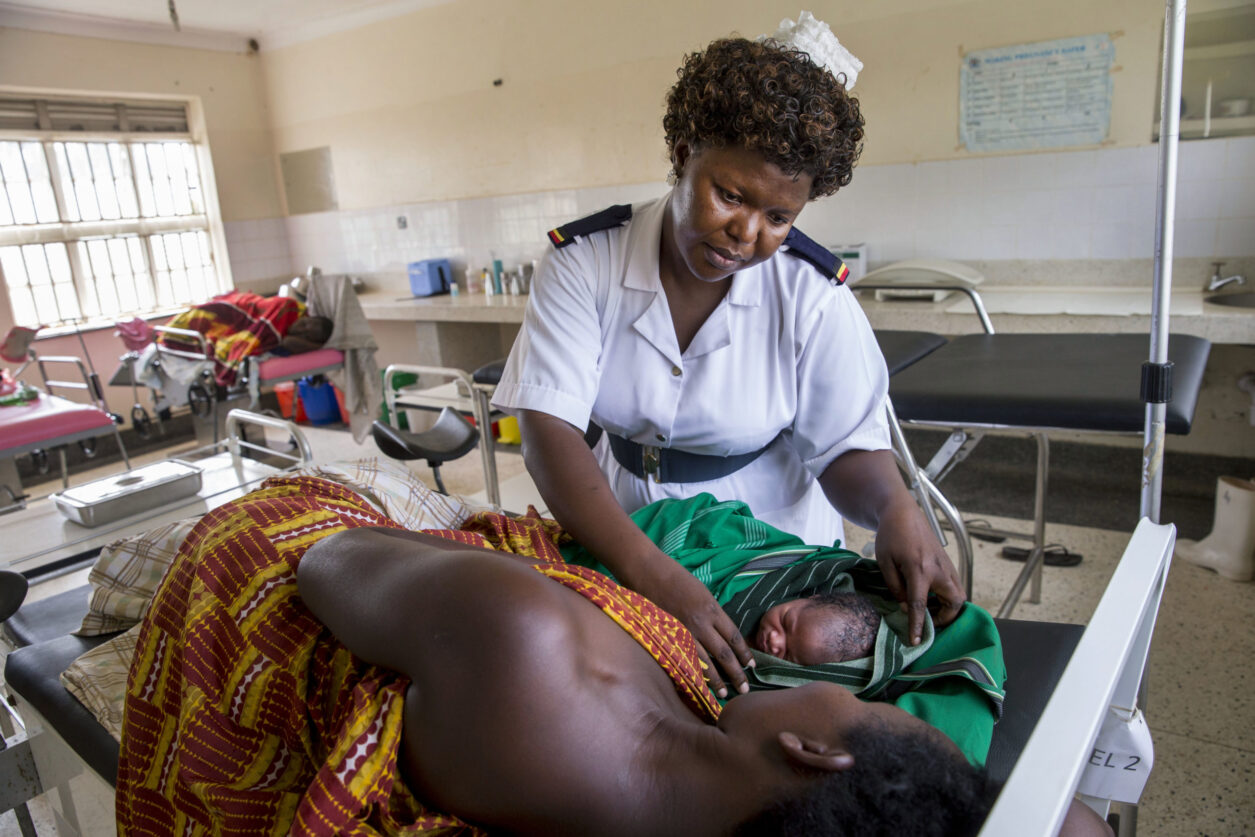
For women and girls around the world, access to safe sexual and reproductive healthcare can be the difference between life and death. A midwife, a mobile clinic, or contraception can be all that stands in the way of a woman and an unwanted pregnancy, an unsafe abortion, or dying in labor.
For millions of women and girls, these basic safeguards were suddenly stripped away. The Trump administration’s freeze on US foreign assistance has meant that even in the world’s most severe conflict zones, where women and girls are already facing desperate situations—such as in Gaza, where miscarriages have increased by 300 percent since the war began and displaced women have been giving birth in unhygienic and traumatic conditions, or Sudan, where sexual violence as a war tactic has led to countless unintended and traumatic pregnancies and girls as young as 14 requiring fistula repair surgery—women and girls have lost access to the few services that were available. In Afghanistan, which has one of the highest maternal mortality rates in the world, many women in remote areas have lost their only source of healthcare, as over 30 clinics have been forced to shut down. Clinics around the world—in Pakistan, Malawi, South Africa, Haiti, and the Philippines—are shutting down and dismissing staff, leaving vulnerable women and girls with nowhere to turn.
In 2024, funding for global health assistance represented less than 0.1 percent of the US federal budget. Of that, only 5 percent—or $608 million—was dedicated to family planning and reproductive health. Yet the US’s contributions made up 40 percent of all donor funding for family planning globally, providing 47.6 million women and girls with contraceptive care each year, preventing 17.1 million unintended pregnancies, and saving 34,000 women and girls from dying from childbirth and pregnancy complications. In 2023, the US provided over $161 million in support to the United Nations Population Fund (UNFPA)—making it the largest overall government donor to the UN’s sexual and reproductive health agency. This support has now been frozen.
It’s precisely because of the US’s leading role in funding sexual and reproductive healthcare that the funding freeze has been so devastating. Research from the Guttmacher Institute estimates that if foreign assistance remains frozen for the intended 90 days, 11.7 million women and girls will lose access to contraceptive care, leading to 4.7 million unintended pregnancies and more than 8,000 maternal deaths.
Yet despite these consequences, the Trump administration has explicitly stated that it does not consider family planning to be “life-saving.” The new administration’s reinstatement of the global gag rule means that beyond the 90-day funding freeze, the US government will continue to prohibit funding to organizations that provide, counsel, refer, or advocate for abortion services—even when these services are independently funded and legal in their own countries. Hospitals, mobile clinics, and community health programs that provide essential sexual and reproductive healthcare to vulnerable communities will face permanent closure. Communities will lose access to a range of frontline healthcare services, including malaria, tuberculosis, and HIV interventions. Women and girls in conflicts and crises will lose a lifeline.
This takes place against worrying trends, where efforts to advance sexual and reproductive health have stagnated and inequities persist—especially for communities affected by crises and displacement. For example, although maternal deaths have decreased by more than 30 percent since 2000, the maternal mortality rate has not improved since 2016. Countries affected by humanitarian emergencies account for nearly 60 percent of maternal deaths. The overwhelming majority of these deaths can be prevented with basic healthcare, including family planning.
Access to sexual and reproductive health services saves lives—especially in crises, where health systems have been destroyed and sexual and gender-based violence skyrockets. In the midst of humanitarian emergencies, girls and women are at greater risk of sexually transmitted infections and HIV, unintended pregnancy, unsafe abortion, and maternal and newborn death. But sexual and reproductive health services also change lives—enabling women and girls to pursue education, obtain economic independence, advance gender equality, and enabling communities to flourish.
While a court has issued a temporary restraining order blocking the administration from suspending aid, the future of aid—particularly for sexual and reproductive healthcare—remains uncertain, and the damage that has already been caused cannot be undone.
The administration must recognize family planning as lifesaving and permanently end the freeze on foreign aid. Congress must act now to protect funding for sexual and reproductive health services globally and pass the Global Health, Empowerment, and Rights Act to permanently repeal the global gag rule.
Women and girls cannot wait another day.
The Women’s Refugee Commission (WRC) fights for the sexual and reproductive health and rights (SRHR) of crisis-affected communities in all of their diversity. We work closely with national and local partners and crisis-affected girls and women to research and respond to global gaps, testing innovative approaches to better their needs. WRC’s research and advocacy has catalyzed advancements for SRHR in emergencies at scale, transforming the ways in which the humanitarian community designs and delivers SRH services.
Learn more about WRC’s work on sexual and reproductive health and rights.

